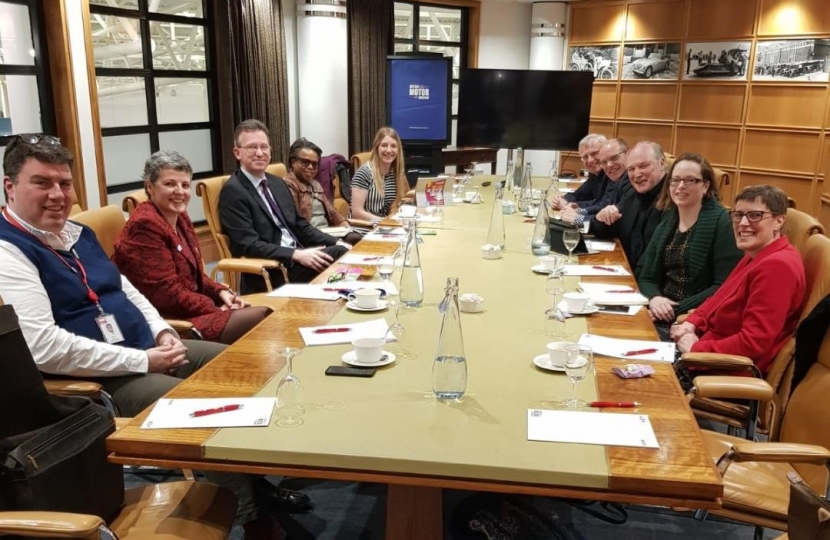
Last week I met with members of CW10 at the British Motor Museum in Gaydon. CW10 is an informal network of senior representatives of leading heritage, museum, performance and arts organisations in the Coventry and Warwickshire area. Members meet monthly to share information, discuss issues of policy, consider advocacy opportunities and engage with visiting speakers. There is representation from the RSC, Warwick Castle, the Belgrade Theatre, Warwick Arts Centre, Compton Verney, Coventry Cathedral, the Shakespeare Birthplace Trust, Culture Coventry and Coventry 2021, together with our host the Motor Museum that is based in my constituency.
We have much to be proud of in the West Midlands, and Coventry and Warwickshire specifically, which is seen by many as a great place to live and work. The CW10 group is alive to not only the richness and appeal of the individual offerings it represents, but also to the wider potential to show our area as a cultural and tourism hub with an authentic history, cutting edge performance, and a dynamic visitor experience at its heart. There is good reason to be excited about the future. Inbound visits to the West Midlands set new records in 2017, with an impressive 2.3 million visits, with visitors spending a combined £807 million in the area. Beyond that, tourism is worth over £68bn to the UK’s economy, which is approximately 4% of the UK’s total. Tourism employs 1.5 million people across the country in cities, rural and coastal areas.
Perhaps even more important than the financial benefits of culture are the personal ones. Culture matters to the wellbeing of us as individuals, it matters to the health of our communities and it matters to the strength of our nation. Recent analysis paints a compelling picture of the impact that the arts can have on our development and wellbeing. It shows how engagement with the arts is linked with higher happiness and self-esteem in young people, helping them to foster feelings of personal pride and achievement. Amongst adults, evaluation of existing projects shows that prescribed arts and reading programmes can reduce anxiety and depression, and lead to an increase in feelings of social inclusion – strengthening communities and giving people a sense of belonging.
More broadly, how we engage with culture of all kinds can change the way we see the world, and the way we see ourselves. Set against the context of the current divisions in Britain that Brexit has highlighted (but are sadly not all new), there has perhaps never been such an important time to have a national conversation about identity, values, aspiration and action. I agree wholeheartedly with CW10 that our cultural capital should be deployed to encourage personal, community and national engagement and dialogue, with an aim of fostering a greater sense of belonging, ownership, understanding, tolerance and shared ambition in our society.

